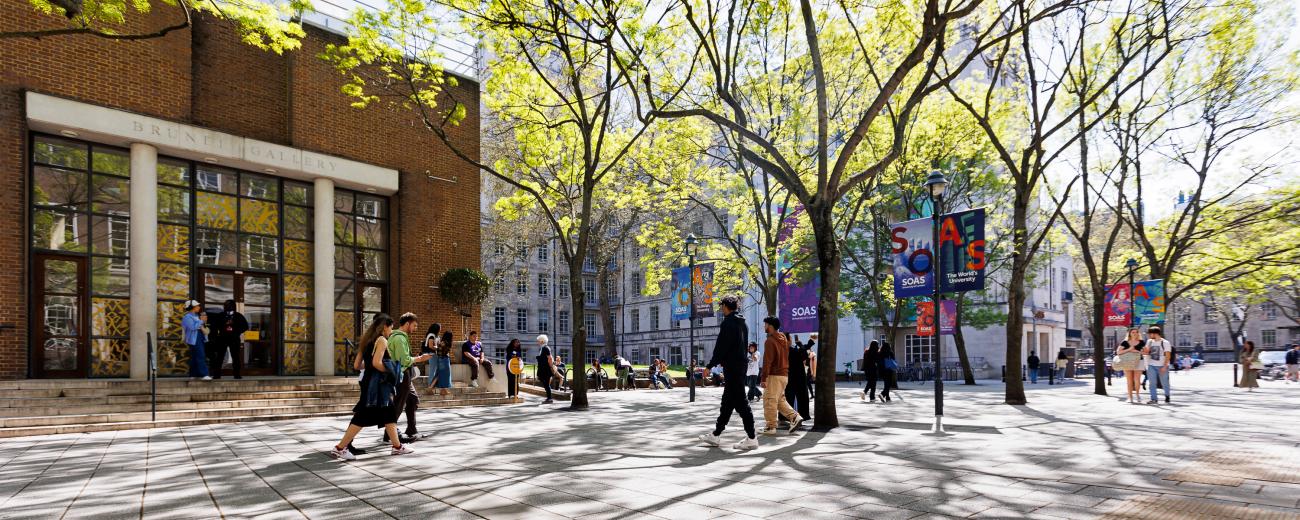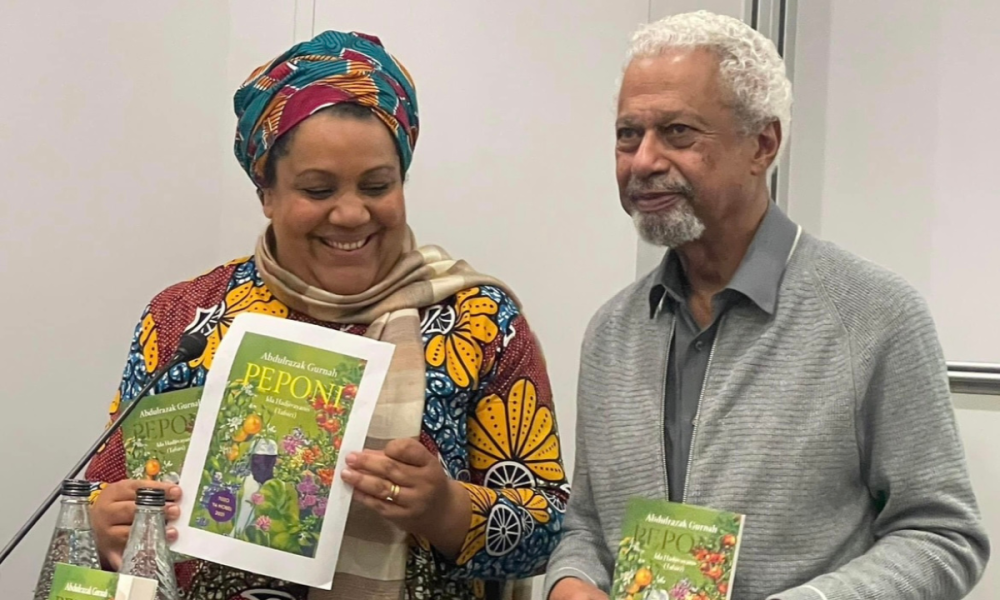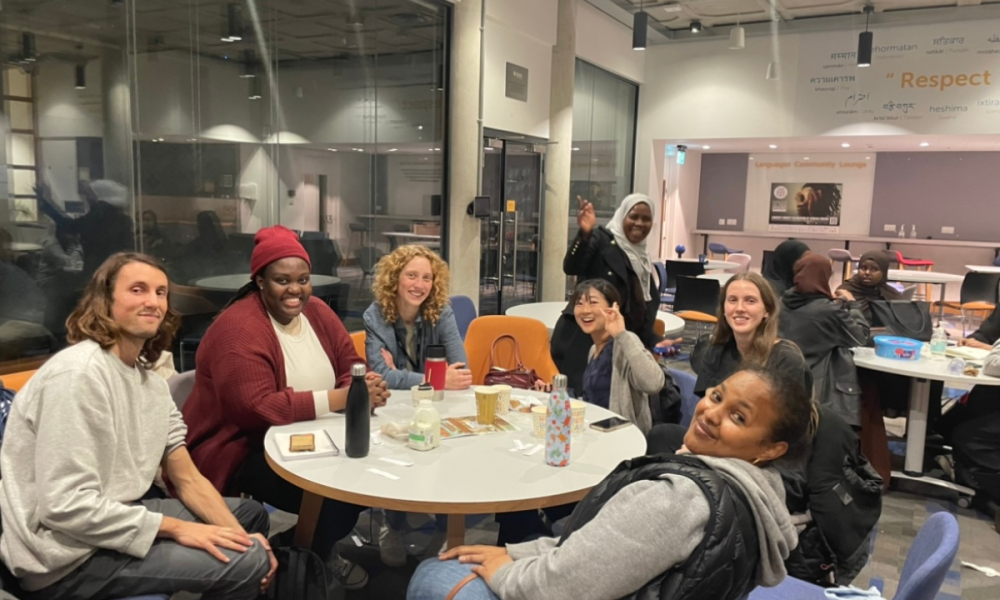World Kiswahili Day: Here is how we celebrate Swahili every day at SOAS



For World Kiswahili Day, Dr Ida Hadjivayanis shares a few highlights of Swahili activities at SOAS that took place in the past year.
Today marks the second World Kiswahili Day, approved by the UNESCO General Conference in November 2021. As an institution that has taught Swahili since 1916, we celebrate Swahili every day. For this year's commemoration, we thought we would share some of the activities that we did this year.
Inviting the Nobel Prize-winning author Professor Abdulrazak Gurnah to SOAS
We kicked off the academic year by holding our annual SOAS Swahili BARAZA conference. This year the theme was Indian Ocean networks, and we welcomed academics, students and colleagues working on Swahili from across the globe who presented on the past and present realms of networks and trajectories around the ocean that have impacted on Swahili language, literature, culture and civilisation and the changing aspects of Swahili language and linguistics.
Our keynote speaker was the Nobel Laureate, Professor Abdulrazak Gurnah, who joined us to launch Peponi, the Swahili translation of his novel Paradise.
As the translator of Peponi and a huge fan of Abdulrazak Gurnah’s work for years, I was particularly overjoyed that he had joined us for the day. Gurnah has always enjoyed a good fanbase of readers in East Africa, especially in his native Zanzibar, and it was my hope that the translation into Swahili, the most common language in the region, will bring in an even wider readership.
This academic year also saw me invited to Tuzo ya Nyerere as an honoured guest. I was able to read from Peponi and participate on a panel that discussed Swahili writing and ways of reviving reading and writing in Swahili. Experts on that panel included Prof Farouk Topan, M. G Vassanji, Abdilatif Abdalla and Prof Mulokozi.
Launching the first Swahili translation of Peponi
This is particularly relevant because, compared to Swahili, English is not as easily accessible to the general public, especially in my native Tanzania. Peponi is set in East Africa at the turn of the century, which means that East Africans will be able to appreciate their history and see themselves in this brilliant work. Also, since its launch, the Tanzanian Ministry of Education, which has been working on narrowing the readership gap in the country, has included the distribution of the work in its 2023/24 budget. Peponi is now being distributed across local schools, colleges and libraries in the country.
Developing a better understanding of Swahili Dialects
Another exciting development has been the progress of the Leverhulme-funded collaborative project, 'Swahili Dialects', which is led by Dr Hannah Gibson and Prof Lutz Marten. The team held workshops at SOAS and invited Swahili students and speakers who were interested in exploring the different ways Swahili is spoken and the relevance of this to its speakers and their identities. Our very own Tom Jelpke, who studied Swahili from his undergrad years, went to the Swahili year Abroad and is a post-Doc on the project. We look forward to learning more from the team in the Swahili Dialects Project.
Meeting other Swahili speakers in London
Also, Adam Johns, our Swahili Senior Lector, has worked on demystifying higher education and has started the London Swahili Meet-up, which meets at SOAS on Wednesdays during the term. This group which has an online presence through WhatsApp has been a source of great joy for the SOAS Swahili community, who immerse themselves in Swahili during the meetings. Many members from our Diaspora join us regularly for a cup of tea and mazungumzo - conversing in Swahili. Ni raha sana.
How we'll be spending World Kiswahili Language Day 2023
For Swahili Day 2023, we will be joining UNESCO, state members of SADC (Southern African Development Community) and EAC (East African Community) in New York, where I have been asked to give the keynote speech on ‘Unleashing Kiswahili's Potential in the Digital Era’. The idea is to ‘draw attention to how Kiswahili can act as a bridge, connecting diverse communities and facilitating inclusive participation in the digital world’.
We are now looking forward to this year's Baraza Swahili Conference, which will be held at SOAS in November. We hope many of you will be able to join us.
We wish you all a great World Kiswahili Day. Heri ya Siku ya Kiswahili Duniani.


